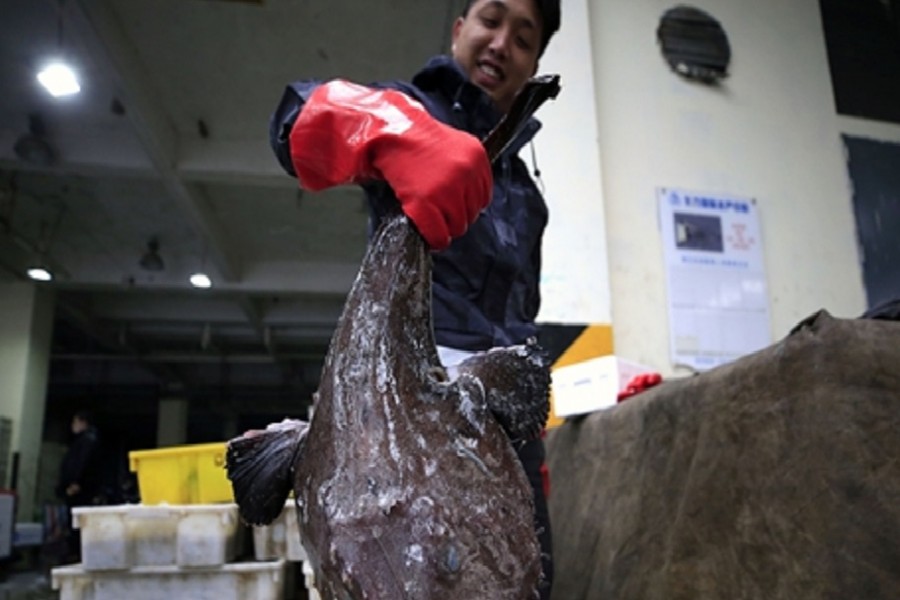Wet markets in many provinces and regions across China have been reopened in succession as cities in Hubei Province get released from lockdown. Restored fresh markets have to meet strict measurements regarding graded epidemic prevention and control standards.
Baishazhou market, the biggest wholesale wet market in Wuhan, is buzzing again this week after the city's lockdown was lifted on April 8. All those entering the market must have their temperatures tested and show market inspectors their green code, which suggests the user is symptom-free.
The market stayed open during the past two months, striving to keep normal operation of the city, which was struggling with the coronavirus. "If Baishazhou were closed, there would be no food for Wuhan people," manager of the market, surnamed Zheng, told the Global Times.
There are separated sections for vegetables, fishery products, frozen poultry and seasoning goods in the market.
Vendors in the market told the Global Times slaughtering of live poultry has long been banned by market authorities. Chickens, pigs, lambs and cows must be butchered in special slaughtering factories in suburban areas, rather than on site.
After the COVID-19 outbreak in late January, many of the city's farmers' and wet markets were ordered to close and to rectify their sanitary hazards.
Zhang Zheyan, manager of a big market in Wuchang district, Wuhan told the Global Times that his market was ordered to lockdown in January, and he is waiting for the government's order to reopen.
But the market's vendors and neighbouring residents cannot wait anymore, as many vendors are in need of income while the demand for fresh food has increased.
Zhang opened a small patch of field in front of its market's closed door, enabling vendors to display their products, such as poultry meat and fresh vegetables. Zhang said this is the market's way of "self- redemption."
The old buzzing Wuyizha market in Wuchang district is nearly empty now, with only a few inspectors disinfecting the market floor and closed doors of shops.
Wang, manager of Wuyizha market, said that more than 500 market vendors, who are now left jobless without income, are waiting eagerly for the government's order to reopen again.
Hong Zhihua, a deputy head of Hubei's Patriotic Health Movement Committee, said at a conference on Friday that the Wuhan city government plans to give out 200 million yuan ($29.81 million) to upgrade 425 farmers market in the city, and urged not to sell wild animals, live poultry, or have pit latrines, and garbage in public after the market reopens.
At Shanghai Orient International Aquatic Product Center in Yangpu district, one of the city's main seafood exchange venues, local residents can now enrich their dinner palate as the wholesale can provide fresh sea products at more affordable prices compared with ordinary wet markets in their neighbourhood.
Regular buyer Mrs Fu said that it took her 45 minutes to come over from Xuhui district in another part of the city but she keeps going here once a month to make purchase not only for her core family but friends and relatives.
"It has always been good deal for me to get fresh and seasonal food. Those markets improve our diet structure and life quality and usually seafood is more healthy and nutritious than meat products for urban residents who want to keep fit," she told the Global Times.


